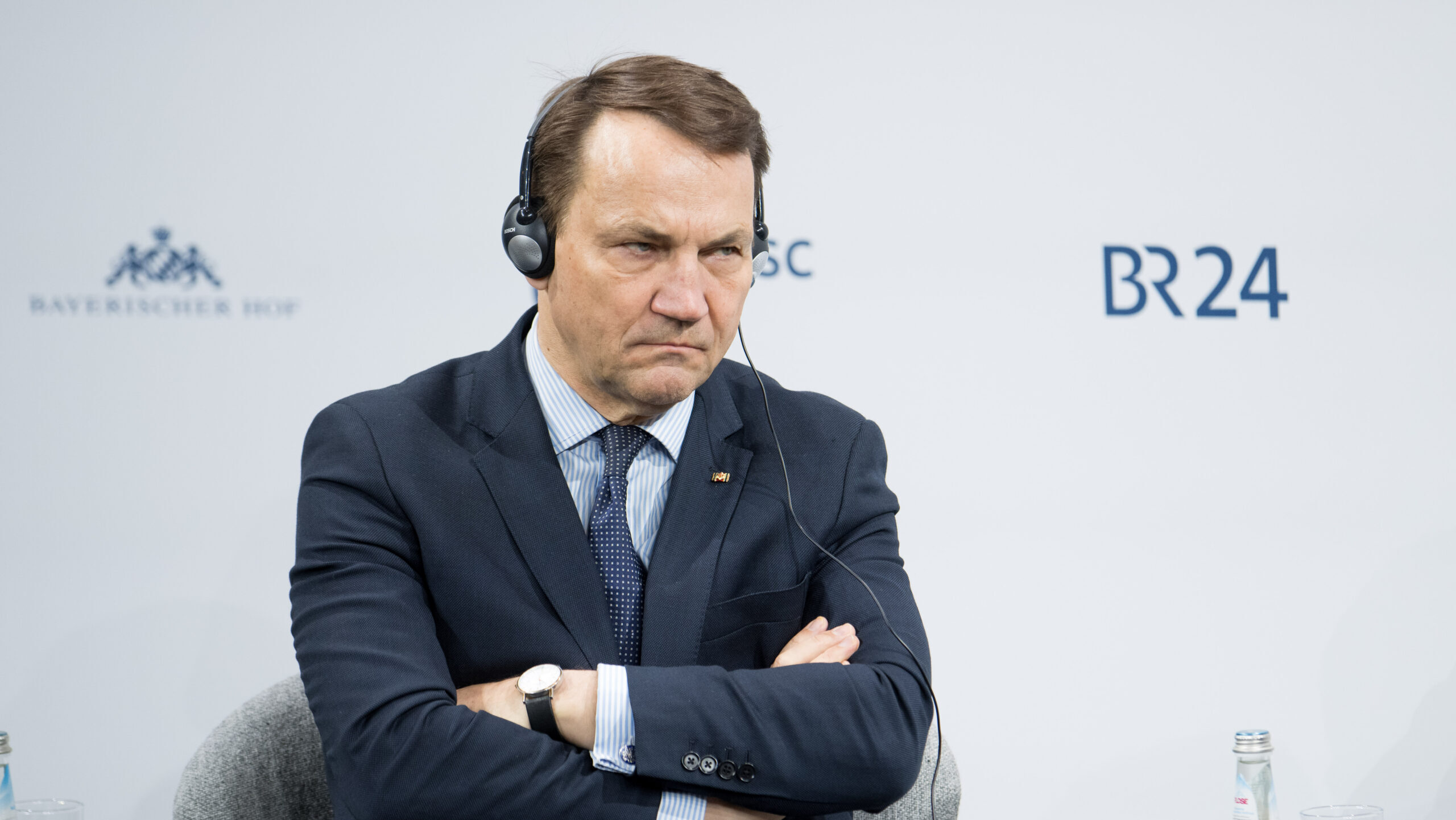
BELFAST — A top Polish government official has called on US House Speaker Mike Johnson by name to allow a vote on the stalled $60 billion Ukrainian military aid package or face international blame for Russia securing new territorial gains over its neighbor.
In comments made on Monday at the Atlantic Council think tank in Washington, Polish Foreign Affairs Minister Radosław Sikorski took the unusual step for a diplomat in singling out an American lawmaker, saying, “If the supplemental were not to pass and Ukraine were to suffer reversals on the battlefield, it will be his [Johnson’s] responsibility.” Sikorski urged the Republican lawmaker to “let democracy take its course.”
“I again appeal personally to Speaker Mike Johnson … please lets pass this to a vote,” he said.
The plea from Sikorski adds to a chorus of European officials who have grown concerned by Washington’s reluctance to approve the new funding and wider fears that Europe cannot sustain the war effort without American weapon supplies. The DoD said last month it was out of money to give Ukraine.
So bleak is that prospect that Ukraine President Volodymr Zelensky told CNN on Sunday that “millions” of people could die fighting in the war if the $60 billion package is not passed.
“The best way to deter Putin and to the success of the [forthcoming NATO] summit … is passing this supplemental in US Congress,” said Sikorski.
House Republican lawmakers are opposed to the aid package because they want to see border security and immigration reform tied to the wider bill, which safely made its way through the Senate earlier this month.
“House Republicans were crystal clear from the very beginning of discussions that any so-called national security supplemental legislation must recognize that national security begins at our own border,” Johnson said after the Senate passed its version of the bill. “The mandate of national security supplemental legislation was to secure America’s own border before sending additional foreign aid around the world. It is what the American people demand and deserve.”
Sikorski argued that US funding and collaboration with Europe must continue in order for “a scale of investment that dwarfs” Russia to be delivered and a Ukraine victory secured, but he stressed that Kyiv should be provided with additional ammunition urgently.
Ukraine has repeatedly called for new supplies of ammunition, air defense systems and long range missiles, amid recent setbacks on the ground and Russia claiming the eastern town of Avdiivka, a first major territorial gain for Moscow since capturing Bakhmut in May 2023.
Sikorski said that he spoke to Ukrainian soldiers in December, and they told him Russian troops had been firing eight ammunition rounds for every one of theirs.
He also sought to counter any notion that the US risks paying too high a financial price for allocating new funding for Ukraine, suggesting that Washington has so far received a “truly stunning return on investment” based on the equivalent of 5 percent of the US DoD’s annual budget, helping to destroy 50 percent of Russia’s “combat capacity.”
He also championed the impact the war in Ukraine has had on the US defense industrial base, citing figures from the American Enterprise Institute that indicate 117 production lines across 71 cities and 31 states are actively assembling equipment for the eastern European country.
“Helping Ukraine is not only a good deed, it is a good deal” for the US economy, he said.
Poland has committed to increase defense spending to over 4 percent GDP this year and has placed a wide range of new orders for US-made equipment in recent years, ranging from Lockheed Martin F-35 fighter jets, to Boeing AH-64E Apache attack helicopters, to General Dynamics Land Systems Abrams main battle tanks and Raytheon made Patriot launchers.
Around 56 percent of Polish equipment orders between 2018 and 2022 were handed to US companies, according to Sikorski.
Elsewhere in his speech, Sikorski cautioned that if the US and Europe do not stay the course against Russia, “democratic nations” could break up and look for new ways to protect their own national security interests, potentially giving rise to a new “nuclear arms race” in the Far East.

